Liming Luke Chen
Big-Five, MPTI, Eysenck or HEXACO: The Ideal Personality Model for Personality-aware Recommendation Systems
Jun 06, 2021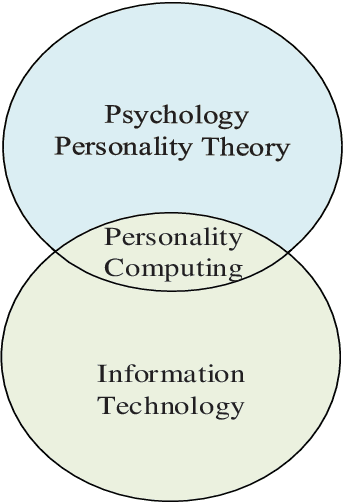
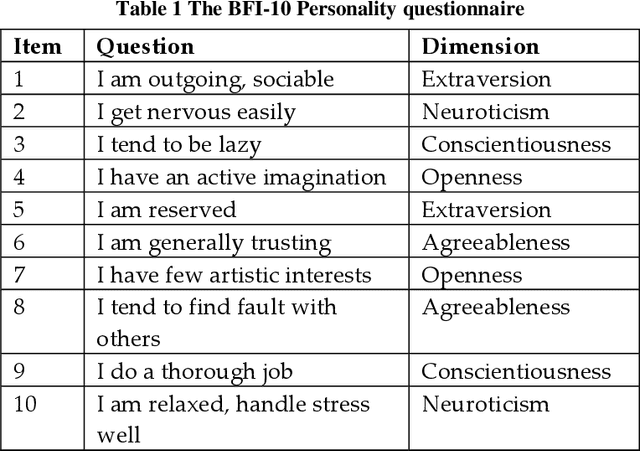
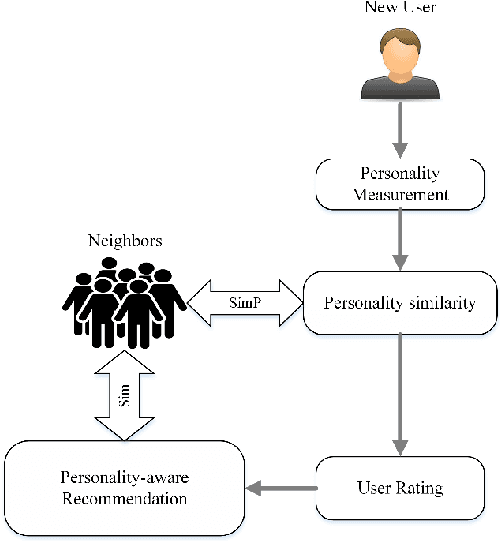
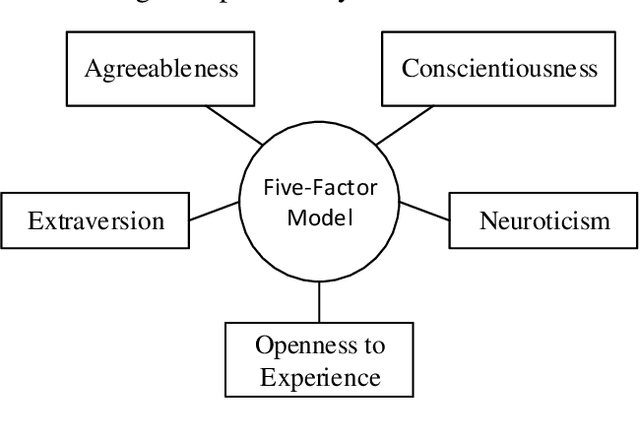
Abstract:Personality-aware recommendation systems have been proven to achieve high accuracy compared to conventional recommendation systems. In addition to that, personality-aware recommendation systems could help alleviate cold start and data sparsity problems. Most of the existing works use Big-Five personality model to represent the user's personality, this is due to the popularity of Big-Five model in the literature of psychology. However, from personality computing perspective, the choice of the most suitable personality model that satisfy the requirements of the recommendation application and the recommended content type still needs further investigation. In this paper, we study and compare four personality-aware recommendation systems based on different personality models, namely Big-Five, Eysenck and HEXACO from the personality traits theory, and Myers-Briggs Type Indicator (MPTI) from the personality types theory. Following that, we propose a hybrid personality model for recommendation that takes advantage of the personality traits models, as well as the personality types models. Through extensive experiments on recommendation dataset, we prove the efficiency of the proposed model, especially in cold start settings.
Social Behavior and Mental Health: A Snapshot Survey under COVID-19 Pandemic
May 17, 2021
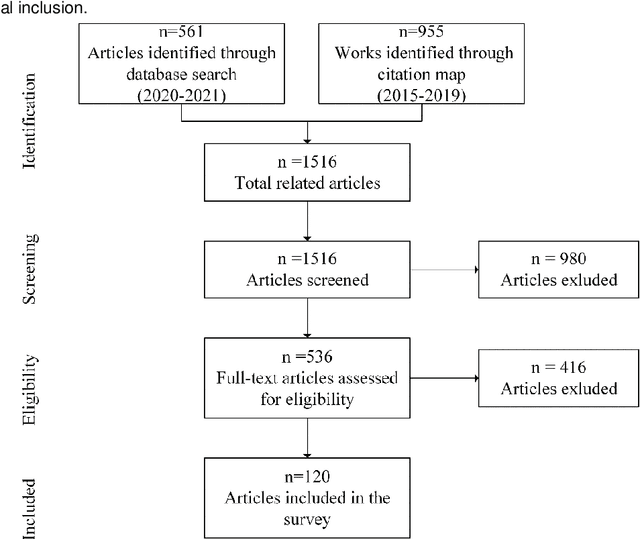


Abstract:Online social media provides a channel for monitoring people's social behaviors and their mental distress. Due to the restrictions imposed by COVID-19 people are increasingly using online social networks to express their feelings. Consequently, there is a significant amount of diverse user-generated social media content. However, COVID-19 pandemic has changed the way we live, study, socialize and recreate and this has affected our well-being and mental health problems. There are growing researches that leverage online social media analysis to detect and assess user's mental status. In this paper, we survey the literature of social media analysis for mental disorders detection, with a special focus on the studies conducted in the context of COVID-19 during 2020-2021. Firstly, we classify the surveyed studies in terms of feature extraction types, varying from language usage patterns to aesthetic preferences and online behaviors. Secondly, we explore detection methods used for mental disorders detection including machine learning and deep learning detection methods. Finally, we discuss the challenges of mental disorder detection using social media data, including the privacy and ethical concerns, as well as the technical challenges of scaling and deploying such systems at large scales, and discuss the learnt lessons over the last few years.
 Add to Chrome
Add to Chrome Add to Firefox
Add to Firefox Add to Edge
Add to Edge